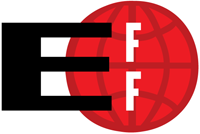 The Internet is global and so are threats to online freedom. Learn about how EFF is fighting for your digital rights around the world and support our efforts by donating or becoming a member.
The Internet is global and so are threats to online freedom. Learn about how EFF is fighting for your digital rights around the world and support our efforts by donating or becoming a member.
At the behest of copyright holders, governments are using international treaties to ratchet up Intellectual Property rights. The Digital Millennium Copyright Act grew out of a treaty negotiated through the World Intellectual Property Organization (WIPO), the UN agency responsible for treaties involving copyright, patent, and trademark laws, and the US government has tried to force similar laws on other countries by slipping it into trade agreements. Most recently, WIPO has begun considering a treaty that would allow broadcasters, cablecasters, and even webcasters to block access to the public domain and restrict your right to record 'casted content. EFF continues to fight for the public interest in these negotiations and other international forums.
In February 2007, EFF opened an office in Brussels, Belgium, home to the European Parliament and European Commission. The Commission plays a fundamental role as initiator of European policy, while the Parliament is the only institution with members elected by European Union member states' citizens and has co-legislative power with the European Council. With our on-the-ground presence, EFF will be a watchdog for the public interest. Along with working with members of the Parliament and the Commission, we aim to collaborate with other European civil liberties organizations and help act as a clearinghouse for digital freedom issues.
 Online Rights Canada (ORC) defends the public interest in Canadian technology and information policy issues. The grassroots organization is jointly supported by EFF and the Canadian Internet Policy & Public Interest Clinic (CIPPIC).
Online Rights Canada (ORC) defends the public interest in Canadian technology and information policy issues. The grassroots organization is jointly supported by EFF and the Canadian Internet Policy & Public Interest Clinic (CIPPIC).
The Internet can be a liberating force worldwide, helping people route around censorship and fight for human rights. But it can also become a tool of state-sponsored oppression, and American companies like Yahoo!, Microsoft, Google, and Cisco may unwittingly become conduits of human rights violations when they do business in countries like China. Collecting information that allows a government to identify who made the search query about "democracy" or sent the email reporting about human rights violations can literally make the difference between life and death. EFF has pushed companies to avoid repressive regimes altogether and has proposed adoption of a corporate code of conduct.